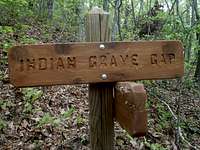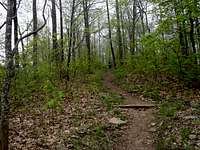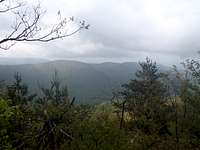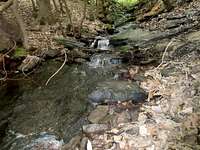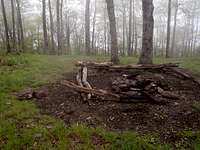-
 13227 Hits
13227 Hits
-
 81.84% Score
81.84% Score
-
 14 Votes
14 Votes
|
|
Mountain/Rock |
|---|---|
|
|
34.79840°N / 83.7299°W |
|
|
Towns & White |
|
|
Hiking |
|
|
Spring, Summer, Fall, Winter |
|
|
4020 ft / 1225 m |
|
|
Overview
Rising east of Unicoi Gap and west of Indian Grave Gap sits Rocky Mountain. While the peak has a rather boring and indistinct summit, it features great views to the south from the eastern end of the summit ridge. Dark, bare rock outcrops make for fine viewing platforms to take in scenery across the Andrews Creek valley to mountains in the distance.
There are no fewer than three ways to reach this peak, all with moderate mileage, including the Rocky Mountain Trail. Proximity to Helen, Georgia and Unicoi State Park combined with easy access make this a popular peak for day hikers seeking views as well as AT backpackers passing over the summit.
Georgia Rank: 18th highest peak in Georgia
Prominence: 920 feet
USGS Quad: Tray Mountain
Planning Map: The Appalachian Trail | Chattahoochee National Forest | Springer Mountain to Bly Gap GEORGIA (by Appalachian Trail Conservancy)
Rank & Prominence: Lists of John
Getting There
| The nearest town to Rocky Mountain is Helen, Georgia, about 90 minutes north-northeast of Atlanta. This map shows you how to get there from surrounding communities, including Atlanta. | ||
There are three primary routes to the summit of Rocky Mountain, each involving approximately 1.3 miles one-way and at least 1,000 vertical feet to reach the top.
From GA 75/17 (paved) at Unicoi Gap via the AT
• To reach Unicoi Gap, travel south on GA 75 11.6 miles from Hiawassee or north 9.2 miles from Helen.
• From Unicoi Gap (ample parking), head northbound on the Appalachian Trail.
• Follow the white blazes
• One-way distance: 1.3 miles
• Elevation Gain: 1,050 feet
From FSR 283 (dirt) at Indian Grave Gap (ample parking) via the AT
• Follow GA 75 south 9.5 miles from Hiawassee or 11.3 miles north from Helen to the intersection with Indian Grave Gap Road (FS 283). Continue 3.7 miles to the AT crossing.
• From Indian Grave Gap, head southbound on the Appalachian Trail
• Follow the white blazes
• One-way distance: 1.3 miles
• Elevation Gain: 1,000 feet
From FSR 283 (dirt) via Rocky Mountain Trail
• Follow GA 75 south 9.5 miles from Hiawassee or 11.3 miles north from Helen to the intersection with Indian Grave Gap Road (FS 283). Continue 2.3 miles to limited parking for Rocky Mountain Trail.
• From FSR 283 (limited parking), follow blue-blazed Rocky Mountain Trail to junction with white blazed AT. Then follow AT northbound to summit.
• One-way distance: 1.3 miles
• Elevation Gain: 1,000 feet
Red Tape
There is no fee to visit this part of the Chattahoochee National Forest and permits are not required for overnight stays in the backcountry. Please be mindful of posted Forest Service user warnings, such as “problem bear” alerts and campfire bans. Note that the Appalachian Trail is open to foot traffic only. Motorized vehicles and pack animals are not permitted. While it appears Rocky Mountain resides within the Swallow Creek Wildlife Management Area, a joint situation managed by Georgia and the National Forest Service, I can find no special considerations restricting access or use as a result.
Please practice Leave No Trace principals:
1. Plan Ahead and Prepare
2. Travel and Camp on Durable Surfaces
3. Dispose of Waste Properly
4. Leave What You Find
5. Minimize Campfire Impacts
6. Respect Wildlife
7. Be Considerate of Other Visitors
Camping & Lodging
AT Backpacking
• Southbound: Blue Mountain shelter is the nearest shelter southbound from Rocky Mountain, 3.5 miles south on the AT.
• Northbound: The Tray Mountain shelter is the nearest shelter northbound from Rocky Mountain, 4.3 miles north on the AT.
Unicoi State Park
Nearby Georgia State Park Unicoi State Park features a lodge (100 rooms) and camping (82 sites), plus 30 cottages and something called the Squirrels Nest, a special group campsite of 16 platforms sleeping 4 each.






